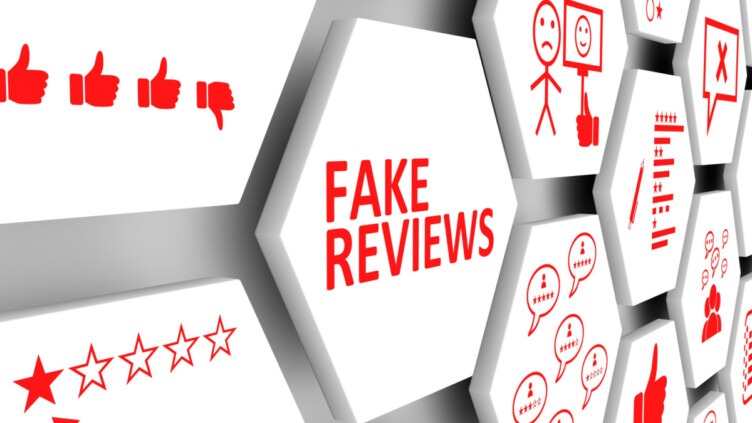Federal Trade Commission Going After Fake Reviews
By SCARS Editorial Team – Society of Citizens Against Relationship Scams Inc.
Federal Trade Commission Announces Proposed Rule Banning Fake Reviews and Testimonials
The Federal Trade Commission proposed a new rule to stop marketers from using illicit review and endorsement practices such as using fake reviews, suppressing honest negative reviews, and paying for positive reviews, which deceive consumers looking for real feedback on a product or service and undercut honest businesses.
“Our proposed rule on fake reviews shows that we’re using all available means to attack deceptive advertising in the digital age,” said Samuel Levine, Director of the FTC’s Bureau of Consumer Protection. “The rule would trigger civil penalties for violators and should help level the playing field for honest companies.”
According To Others
Per NPR
“Those of us who shop online may scan customer reviews to get a better sense of products we can’t judge for ourselves at a brick-and-mortar store. We may check out online testimonials before booking a haircut or visiting a new restaurant.”
“But what happens if some of those reviews can’t be trusted?”
“Research shows people overwhelmingly consult online reviews before opening their wallet, but humans are also bad at telling which consumer reviews hold water and which are full of hot air.”
“That’s potentially worrisome given that nearly one in every three reviews is fake, according to one estimate.”
Per the Washington Post
“Those 10,000 5-star reviews are fake. Now they’ll also be illegal.”
“You’ve seen it before: Thousands of conspicuous five-star reviews for a borderline product. Perhaps even a merchant has offered to pay you to leave a positive review. This kind of fraud undermines our collective power as consumers. “
“If the rules are approved, they’ll carry a big stick: a fine of up to $50,000 for each fake review, for each time a consumer sees it.”
It’s the biggest step to date by the federal government to deter the insidious market for buying and selling fake reviews, though the FTC’s rules don’t do as much to hold big review sites like Yelp, Google, Tripadvisor and Amazon directly accountable.
Notice Of Rule Making On Fake Reviews
In its notice of proposed rulemaking, the Commission cited examples of clearly deceptive practices involving consumer reviews and testimonials from its past cases, and noted the widespread emergence of generative AI, which is likely to make it easier for bad actors to write fake reviews.
The Commission is seeking comments on proposed measures that would fight these clearly deceptive practices. For example, the proposed rule would prohibit:
- Selling or Obtaining Fake Consumer Reviews and Testimonials: The proposed rule would prohibit businesses from writing or selling consumer reviews or testimonials by someone who does not exist, who did not have experience with the product or service, or who misrepresented their experiences. It also would prohibit businesses from procuring such reviews or disseminating such testimonials if the businesses knew or should have known that they were fake or false.
- Review Hijacking: Businesses would be prohibited from using or repurposing a consumer review written for one product so that it appears to have been written for a substantially different product. The FTC recently brought its first review hijacking enforcement action.
- Buying Positive or Negative Reviews: Businesses would be prohibited from providing compensation or other incentives conditioned on the writing of consumer reviews expressing a particular sentiment, either positive or negative.
- Insider Reviews and Consumer Testimonials: The proposed rule would prohibit a company’s officers and managers from writing reviews or testimonials of its products or services, without clearly disclosing their relationships. It also would prohibit businesses from disseminating testimonials by insiders without clear disclosures of their relationships, and it would prohibit certain solicitations by officers or managers of reviews from company employees or their relatives, depending on whether the businesses knew or should have known of these relationships.
- Company Controlled Review Websites: Businesses would be prohibited from creating or controlling a website that claims to provide independent opinions about a category of products or services that includes its own products or services.
- Illegal Review Suppression: Businesses would be prohibited from using unjustified legal threats, other intimidation, or false accusations to prevent or remove a negative consumer review. The proposed rule also would bar a business from misrepresenting that the reviews on its website represent all reviews submitted when negative reviews have been suppressed.
- Selling Fake Social Media Indicators: Businesses would be prohibited from selling false indicators of social media influence, like fake followers or views. The proposed rule also would bar anyone from buying such indicators to misrepresent their importance for a commercial purpose.
The proposed rule follows an advance notice of proposed rulemaking the Commission announced last November. The FTC received comments from individual consumers, trade associations, review platform operators, small businesses, consumer advocacy organizations, entities dedicated to fighting fake reviews, and academic researchers.
Although the FTC has taken strong enforcement action in this area recently, case-by-case enforcement without civil penalty authority might not be enough to deter clearly deceptive review and testimonial practices. The Supreme Court’s decision in AMG Capital Management LLC v. FTC has hindered the FTC’s ability to seek monetary relief for consumers under the FTC Act. A rule clearly spelling out prohibited practices and allowing for the judicial imposition of civil penalties could strengthen deterrence and FTC enforcement actions.
The notice includes questions for public comment to inform the Commission’s decision-making on the proposal. These questions focus on provisions in the proposed rule and whether other provisions should or should not be included in the rule. After the Commission reviews the comments received, it will decide whether to take the necessary next steps toward issuing a final rule.
The Commission vote to approve the NPRM was 3-0. The NPRM will be published in the Federal Register soon. Instructions for filing comments appear in the notice. Comments must be received within 60 days of the publication of the notice. The primary staff member on these matters is Michael Ostheimer in the FTC’s Bureau of Consumer Protection.
The Federal Trade Commission works to promote competition and protect and educate consumers. Learn more about consumer topics at consumer.ftc.gov, or report fraud, scams, and bad business practices at ReportFraud.ftc.gov. Follow the FTC on social media, read consumer alerts and the business blog, and sign up to get the latest FTC news and alerts.
More ScamsNOW.com Articles
-/ 30 /-
What do you think about this?
Please share your thoughts in a comment below!
SCARS LINKS: AgainstScams.org RomanceScamsNOW.com ContraEstafas.org ScammerPhotos.com Anyscam.com ScamsNOW.com
reporting.AgainstScams.org support.AgainstScams.org membership.AgainstScams.org donate.AgainstScams.org shop.AgainstScams.org
youtube.AgainstScams.org linkedin.AgainstScams.org facebook.AgainstScams.org
TABLE OF CONTENTS
CATEGORIES
![NavyLogo@4x-81[1] Federal Trade Commission Going After Fake Reviews](https://scamsnow.com/wp-content/uploads/2025/04/NavyLogo@4x-811.png)
ARTICLE META
Important Information for New Scam Victims
- Please visit www.ScamVictimsSupport.org – a SCARS Website for New Scam Victims & Sextortion Victims.
- SCARS Institute now offers its free, safe, and private Scam Survivor’s Support Community at www.SCARScommunity.org – this is not on a social media platform, it is our own safe & secure platform created by the SCARS Institute especially for scam victims & survivors.
- SCARS Institute now offers a free recovery learning program at www.SCARSeducation.org.
- Please visit www.ScamPsychology.org – to more fully understand the psychological concepts involved in scams and scam victim recovery.
If you are looking for local trauma counselors, please visit counseling.AgainstScams.org
If you need to speak with someone now, you can dial 988 or find phone numbers for crisis hotlines all around the world here: www.opencounseling.com/suicide-hotlines
Statement About Victim Blaming
Some of our articles discuss various aspects of victims. This is both about better understanding victims (the science of victimology) and their behaviors and psychology. This helps us to educate victims/survivors about why these crimes happened and not to blame themselves, better develop recovery programs, and help victims avoid scams in the future. At times, this may sound like blaming the victim, but it does not blame scam victims; we are simply explaining the hows and whys of the experience victims have.
These articles, about the Psychology of Scams or Victim Psychology – meaning that all humans have psychological or cognitive characteristics in common that can either be exploited or work against us – help us all to understand the unique challenges victims face before, during, and after scams, fraud, or cybercrimes. These sometimes talk about some of the vulnerabilities the scammers exploit. Victims rarely have control of them or are even aware of them, until something like a scam happens, and then they can learn how their mind works and how to overcome these mechanisms.
Articles like these help victims and others understand these processes and how to help prevent them from being exploited again or to help them recover more easily by understanding their post-scam behaviors. Learn more about the Psychology of Scams at www.ScamPsychology.org
SCARS INSTITUTE RESOURCES:
If You Have Been Victimized By A Scam Or Cybercrime
♦ If you are a victim of scams, go to www.ScamVictimsSupport.org for real knowledge and help
♦ SCARS Institute now offers its free, safe, and private Scam Survivor’s Support Community at www.SCARScommunity.org/register – this is not on a social media platform, it is our own safe & secure platform created by the SCARS Institute especially for scam victims & survivors.
♦ Enroll in SCARS Scam Survivor’s School now at www.SCARSeducation.org
♦ To report criminals, visit https://reporting.AgainstScams.org – we will NEVER give your data to money recovery companies like some do!
♦ Follow us and find our podcasts, webinars, and helpful videos on YouTube: https://www.youtube.com/@RomancescamsNowcom
♦ Learn about the Psychology of Scams at www.ScamPsychology.org
♦ Dig deeper into the reality of scams, fraud, and cybercrime at www.ScamsNOW.com and www.RomanceScamsNOW.com
♦ Scam Survivor’s Stories: www.ScamSurvivorStories.org
♦ For Scam Victim Advocates visit www.ScamVictimsAdvocates.org
♦ See more scammer photos on www.ScammerPhotos.com
You can also find the SCARS Institute’s knowledge and information on Facebook, Instagram, X, LinkedIn, and TruthSocial
Psychology Disclaimer:
All articles about psychology and the human brain on this website are for information & education only
The information provided in this and other SCARS articles are intended for educational and self-help purposes only and should not be construed as a substitute for professional therapy or counseling.
Note about Mindfulness: Mindfulness practices have the potential to create psychological distress for some individuals. Please consult a mental health professional or experienced meditation instructor for guidance should you encounter difficulties.
While any self-help techniques outlined herein may be beneficial for scam victims seeking to recover from their experience and move towards recovery, it is important to consult with a qualified mental health professional before initiating any course of action. Each individual’s experience and needs are unique, and what works for one person may not be suitable for another.
Additionally, any approach may not be appropriate for individuals with certain pre-existing mental health conditions or trauma histories. It is advisable to seek guidance from a licensed therapist or counselor who can provide personalized support, guidance, and treatment tailored to your specific needs.
If you are experiencing significant distress or emotional difficulties related to a scam or other traumatic event, please consult your doctor or mental health provider for appropriate care and support.
Also read our SCARS Institute Statement about Professional Care for Scam Victims – click here
If you are in crisis, feeling desperate, or in despair, please call 988 or your local crisis hotline – international numbers here.
More ScamsNOW.com Articles
A Question of Trust
At the SCARS Institute, we invite you to do your own research on the topics we speak about and publish. Our team investigates the subject being discussed, especially when it comes to understanding the scam victims-survivors’ experience. You can do Google searches, but in many cases, you will have to wade through scientific papers and studies. However, remember that biases and perspectives matter and influence the outcome. Regardless, we encourage you to explore these topics as thoroughly as you can for your own awareness.

























![scars-institute[1] Federal Trade Commission Going After Fake Reviews](https://scamsnow.com/wp-content/uploads/2025/04/scars-institute1.png)

![niprc1.png1_-150×1501-1[1] Federal Trade Commission Going After Fake Reviews](https://scamsnow.com/wp-content/uploads/2025/04/niprc1.png1_-150x1501-11.webp)